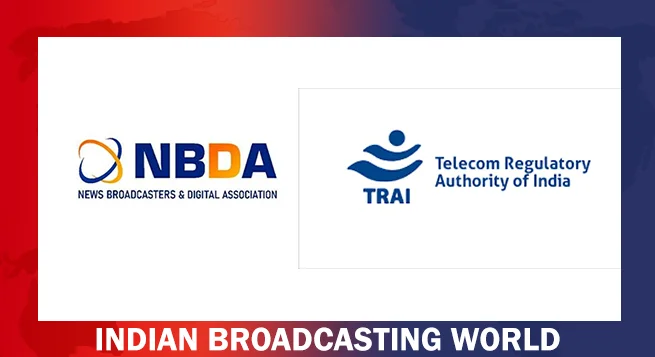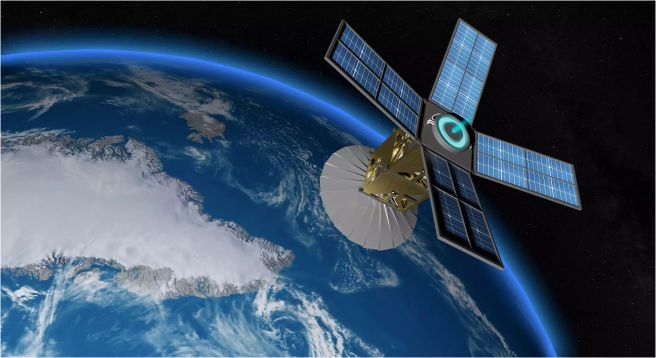For the first time, India has admitted that private sector satellite companies could provide satellite broadband subject to country’s space policies, but did not offer any comment on whether any specific proposal(s) has been submitted or not by an Indian or a foreign company.
“Private players are allowed to render their satellite based broadband service subject to compliance with Satcom Policy of Department of Space,” India’s junior Communications Minister Devusinh Chauhan told Rajya Sabha (Upper House of parliament) on Thursday.
Asked by a fellow parliamentarian via a question whether the Communications Ministry has details of number of private sector satellite companies providing broadband service, Chauhan was silent on that particular aspect.
The Minister, however, added: “The broadband service through (Indian) satellite is already being provided to Gram Panchayats (local village administrations) under BharatNet programme.”
Chauhan also informed parliament that telecom service providers and Internet Service Providers were free to use a technology, including satellites, for “rendering broadband service based on their techno-commercial considerations”.
“GSAT-11 and GSAT-19, the High Throughput Satellites of ISRO, are already in use for broadband connectivity under BharatNet programme,” he explained.
Though there are no official word on it yet but Indianbroadcastingworld.com is aware, and has reported earlier too, that at least two foreign satcos have evinced interest in providing broadband services via their own satellites.
Both these companies — SpaceX (Starlink) and OneWeb, co-funded by Bharti Airtel — attended a recent virtual meeting of stakeholders organized by Department of Telecom (DoT) of the Communications Ministry and made noises about collaborating with Indian companies for some of the hardware needed for satellite broadband service.
Few months back, SpaceX had invited Indians to pre-book the company’s broadband service called Starlink at the rate of USD 99 — till Broadband India Forum (BIF) raised the issue with Indian government agencies on the SpaceX move and whether such pre-bookings could be allowed under the present Indian spacecom policies.
As BIF had raised valid questions, DoT promised to look into the matter, which prompted the Elon Musk company to shun the limelight. Last year SpaceX had made a submission on a consultation paper on broadband, floated by TRAI, highlighting that satellites could prove useful in providing high-speed broadband services to remote areas, but for that to happen Indian regulations needed to be tweaked.
Auction of Additional Spectrum To Be Referred To TRAI: Meanwhile, to an another question from a fellow parliamentarian on radio spectrum beyond 866.60 MHz, which could not be auctioned by the government, junior Communications Minister Chauhan said that the matter would be referred back to telecoms regulator TRAI for feedback.
Asked about the reasons for unrealistic reserve prices for spectrum over 866.60 MHz, which failed to attract bidders, Chauhan said, “Government is considering to send a reference to TRAI seeking its recommendations on issues involved in auction of spectrum available with the Government, for International Mobile Telecommunications (IMT) services.”
The government informed that it had conducted auction of right to use spectrum in 700 MHz, 800 MHz, 900 MHz, 1800 MHz, 2100 MHz, 2300 MHz and 2500 MHz bands in March 2021. Total of 2308.8 MHz spectrum was put to auction with cumulative reserve price of Rs. 400396.20 crore. Telecom service providers had acquired right to use 855.60 MHz of spectrum worth Rs. 77820.82 crore in the auction in various bands, for a period of 20 years.
The reserve price of each band of spectrum is fixed by the government after considering the recommendations of TRAI.
 Delhi HC orders meta to remove deepfake videos of Rajat Sharma
Delhi HC orders meta to remove deepfake videos of Rajat Sharma  Govt. blocked 18 OTT platforms for obscene content in 2024
Govt. blocked 18 OTT platforms for obscene content in 2024  Broadcasting industry resists inclusion under Telecom Act
Broadcasting industry resists inclusion under Telecom Act  DTH viewing going down & a hybrid ecosystem evolving: Dish TV CEO
DTH viewing going down & a hybrid ecosystem evolving: Dish TV CEO  New adventure of detective Feluda debuts on Hoichoi Dec. 20
New adventure of detective Feluda debuts on Hoichoi Dec. 20  ‘Pushpa 2’ breaks records as most watched film of 2024: BookMyShow Report
‘Pushpa 2’ breaks records as most watched film of 2024: BookMyShow Report  Hungama OTT unveils ‘Pyramid’
Hungama OTT unveils ‘Pyramid’  Amazon MX Player to premiere ‘Party Till I Die’ on Dec 24
Amazon MX Player to premiere ‘Party Till I Die’ on Dec 24  aha Tamil launches ‘aha Find’ initiative with ‘Bioscope’
aha Tamil launches ‘aha Find’ initiative with ‘Bioscope’  Netflix India to stream WWE content starting April 2025
Netflix India to stream WWE content starting April 2025 








